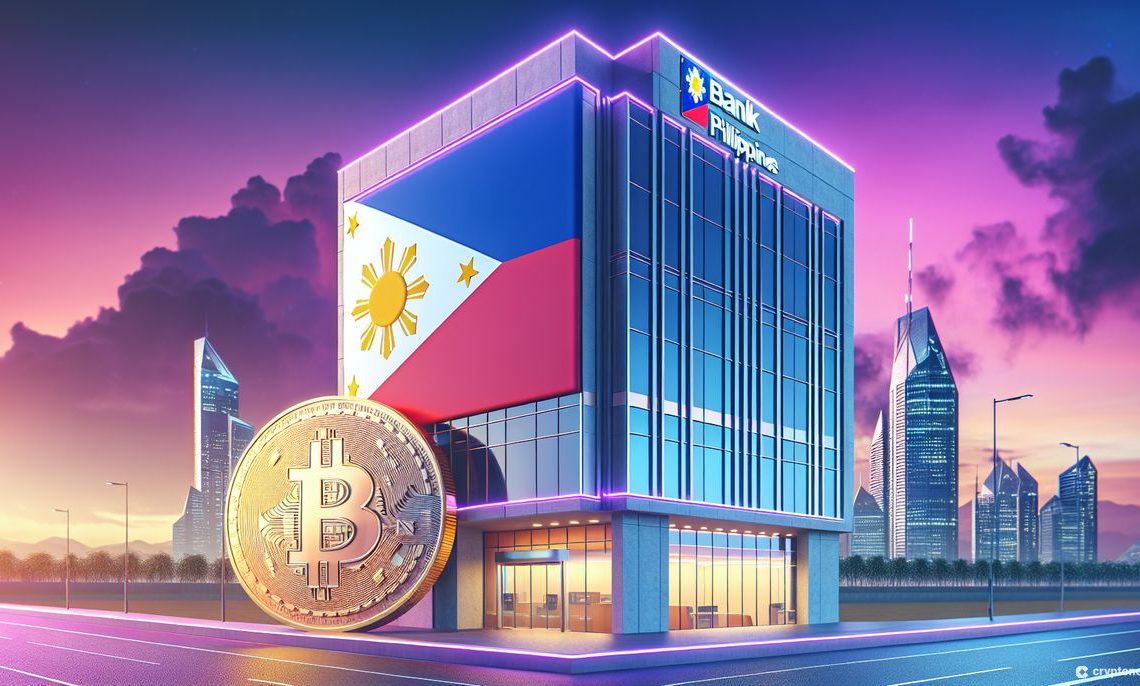Governor Eli Remolona of the Philippines Central Bank (BSP) has disclosed the central bank’s plans to introduce a wholesale central bank digital currency (CBDC) in the coming years.
The Bangko Sentral ng Pilipinas (BSP) is optimistic about the ongoing growth of digital payment technologies, which are expected to enhance the delivery of financial services to unbanked Filipinos and micro, small, and medium enterprises (MSMEs).
Philippines Central Bank Reveals Strategy for CBDC Development, Emphasizing Wholesale Approach
In an interview with local newspaper Inquirer.net on Feb. 12, Remolona outlined the BSP’s strategy for developing the CBDC, emphasizing that blockchain technology will not be utilized in the project:
“Other central banks have tried blockchain, but it didn’t go well.”
Instead, the CBDC will operate on a payment and settlement system owned by the central bank. The BSP will concentrate on a wholesale CBDC, which will involve mediation by banks.
Remolona expressed concerns regarding potential issues associated with retail CBDCs, such as disintermediation, bank runs during financial stress, and the expansion of the central bank’s footprint. As a result, the decision has been made to limit the CBDC to wholesale transactions, with banks serving as the only counterparties.
Remolona referenced the experiences of countries like Sweden and China, which are developing CBDCs as digital alternatives to cash and to compete with cryptocurrencies. He believes that the Philippines can replicate their successes. He assured that the CBDC would be implemented within his term as governor, with the possibility of it happening within the next two years.
BSP Deputy Governor Mamerto Tangonan attributed the significant progress in digital payments to the implementation of the BSP’s 2020–2023 Digital Payments Transformation Roadmap (DPTR), supported by both public and private sector partners.
Tangonan noted that from a mere one percent share of digital to total retail payments in 2013, the Philippines has seen substantial growth, reaching a 42.1 percent share in digital retail payments transactions by 2022.
He expressed confidence that the country would achieve its 50-percent target by the end of 2023, highlighting the sector’s exponential expansion.
Digitalization in the Philippine Financial System Is in Full Bloom
In 2022, the Bangko Sentral ng Pilipinas (BSP) and the Philippines’ Department of the Interior and Local Government (DILG) introduced Paleng-QR Ph Plus, a program aimed at promoting digital payments in public markets, transport hubs, and various businesses using QR Ph technology.
According to the BSP, QR payments offer a secure, convenient, and efficient way for both merchants and customers to make and receive payments.
Deputy Governor Bernadette Romulo-Puyat of the Central Bank of the Philippines highlighted the additional benefits of digital payments, emphasizing that digital transaction accounts enable users to monitor their finances, reduce unnecessary spending, and manage their budgets more effectively.
Moreover, these accounts provide access to other financial tools such as insurance, investments, and savings.
Paleng-QR Ph Plus aligns with the BSP’s objective of transitioning half of the country’s total retail payments volume into digital form and integrating 70% of Filipino adults into the formal financial system by this year, as outlined in the BSP’s Digital Payments Transformation Roadmap 2020-2023.
The initiative is among the priority projects supporting the National Strategy for Financial Inclusion 2022-2028, serving as the overarching framework for all stakeholders collaborating to accelerate financial inclusion in the country.
In addition to Paleng-QR Ph Plus, the BSP has launched several other digital payment initiatives. Bills Pay Ph, for instance, was introduced to streamline the country’s fragmented bill payment system, enabling users to settle their bills regardless of whether they have an account with their billers’ payment service provider.
The BSP disclosed that it is now mapping out the next phase of the country’s digital journey under the 2024–2026 Digital Payments Transformation Roadmap.
In November 2023, the Philippines Bureau of the Treasury said it would offer 10 billion pesos ($179 million) of one-year tokenized Treasury bonds for the first time after canceling the traditional auction scheduled for Nov. 20. The bonds will be valid for one year and due in November 2024. The final interest rate will be disclosed on the issuance date.
Read the full article here









